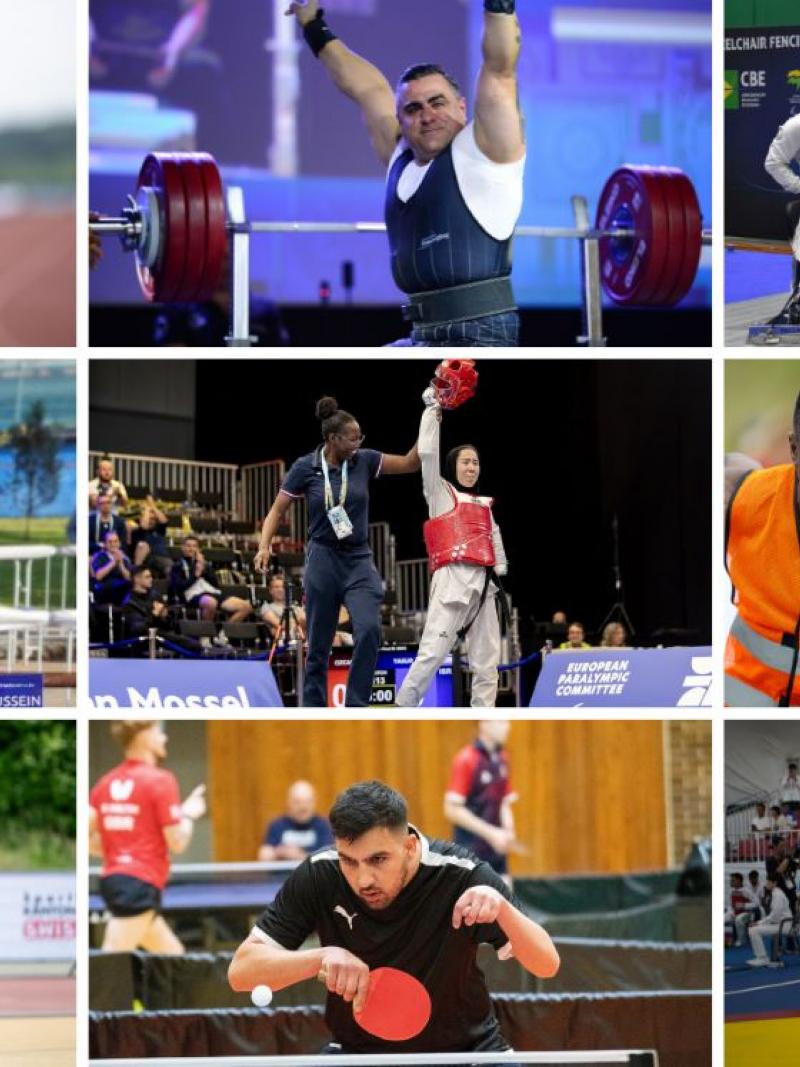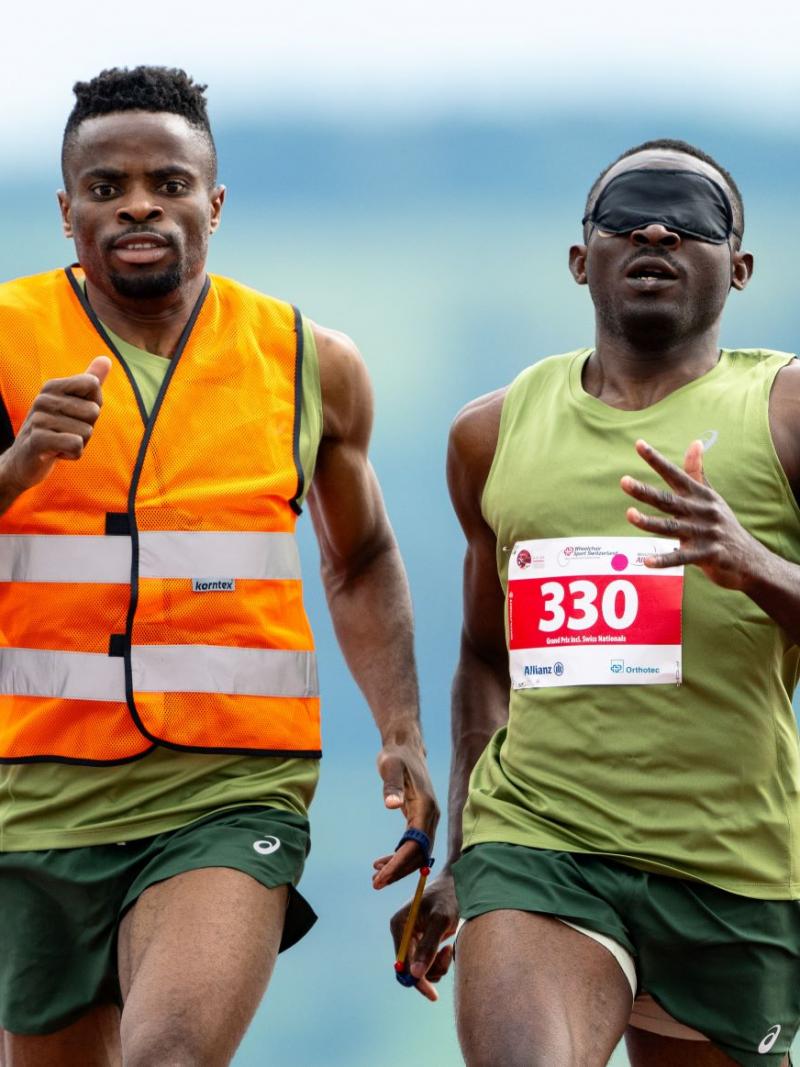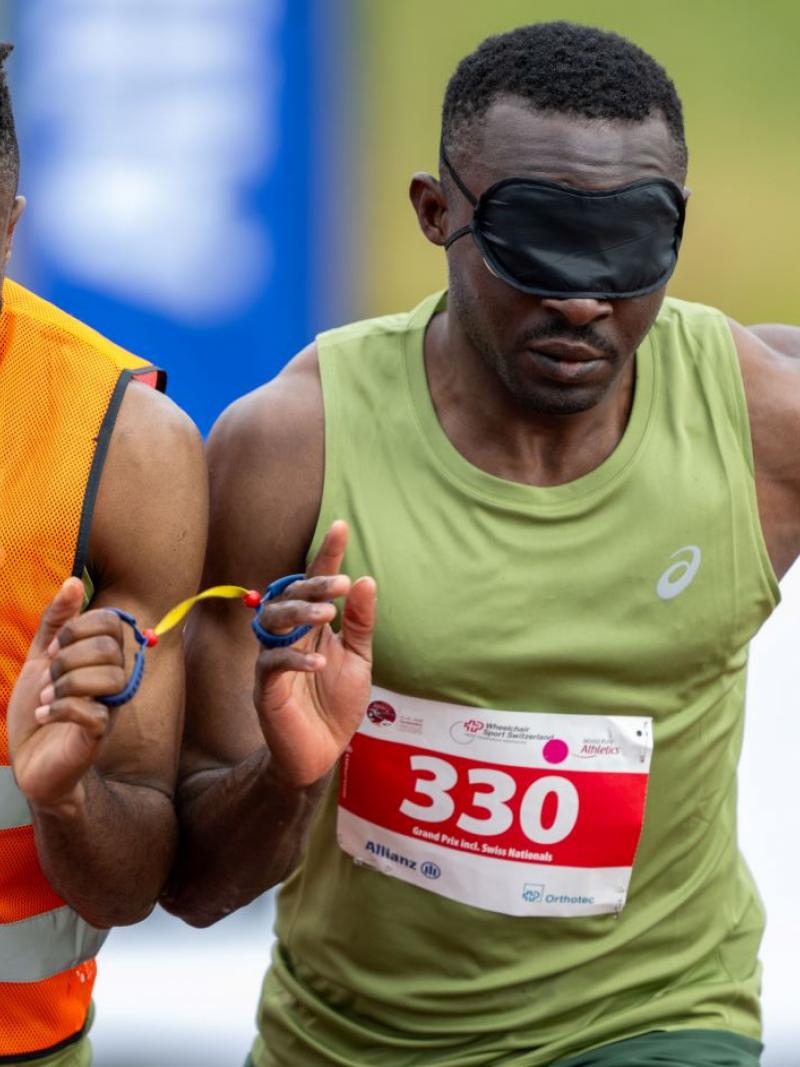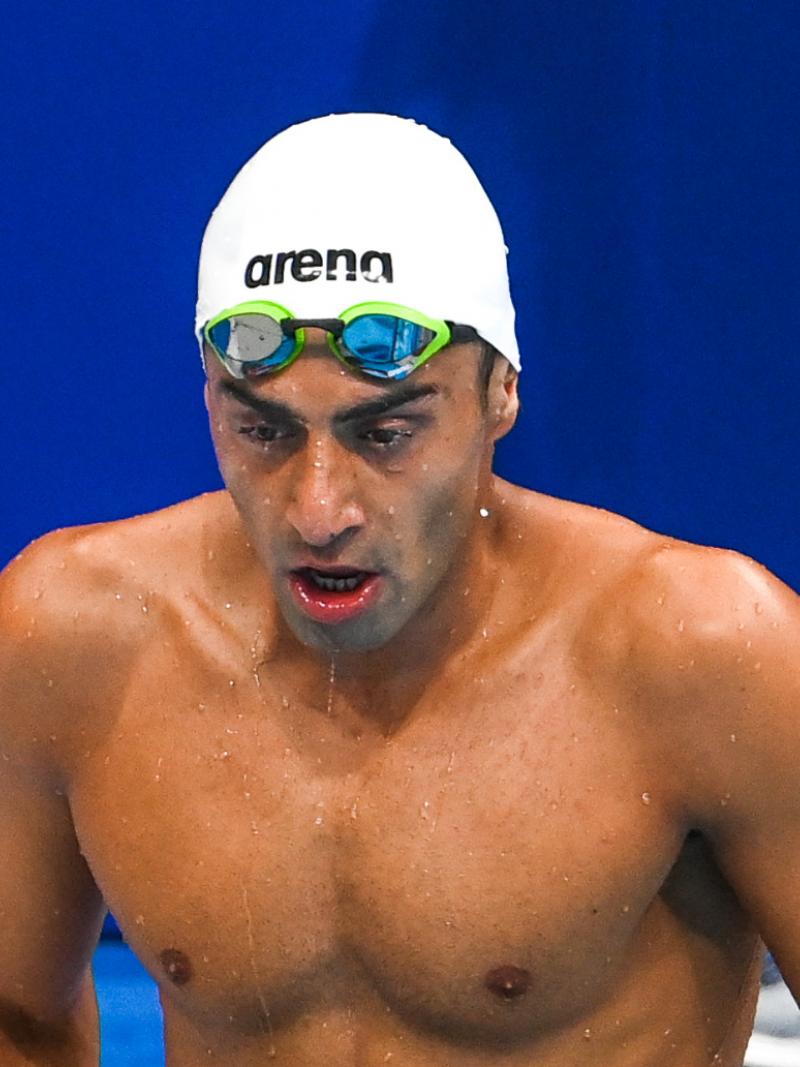Q&A with Refugee Paralympic Team athlete Hadi Darvish
Hadi Darvish will compete in Para powerlifting as a member of the largest-ever Refugee Paralympic Team The Q&As have been edited for length and clarity 09 Jul 2024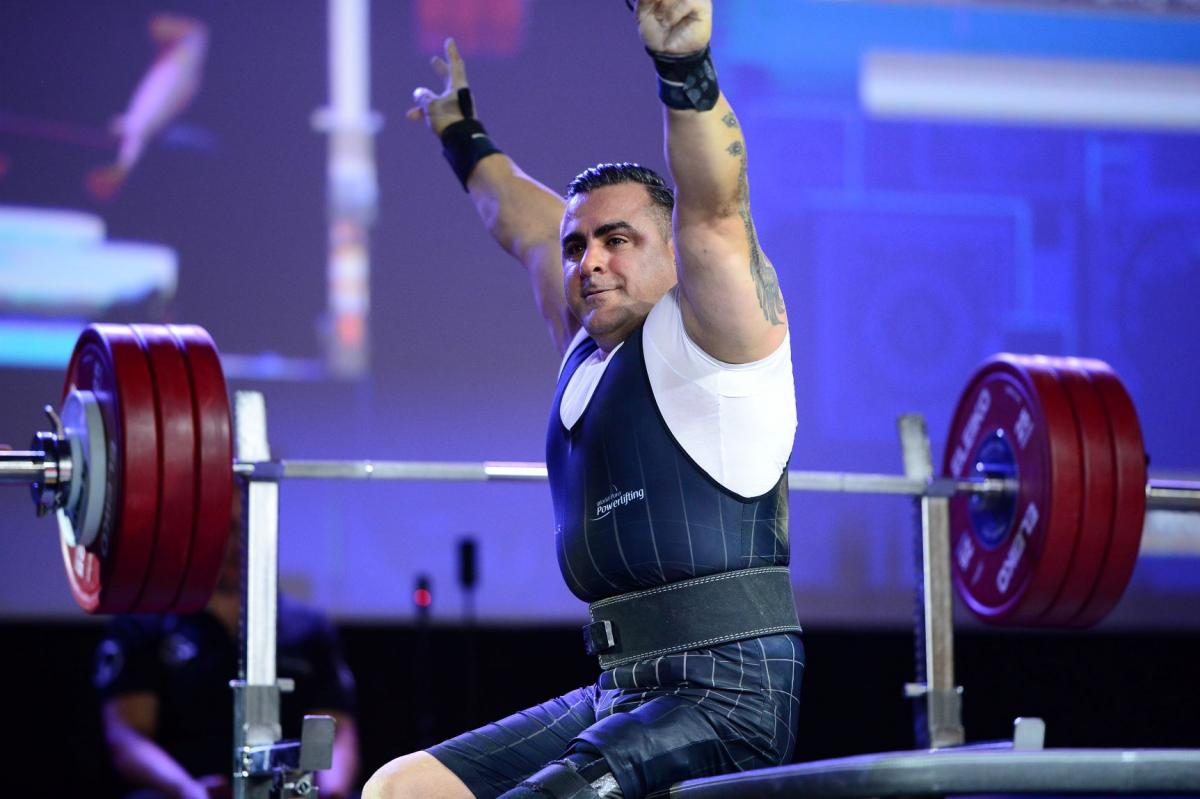
1. Tell us a little about your story?
I was born in Tehran, Iran. After finishing university, I got a government job. But I was forced to leave my homeland, my family and everything I owned. I did not view the conditions there as compatible with my freedom-loving spirit.
2. What are some of the biggest challenges that you’ve faced in your life and your journey to Paris?
I faced many obstacles that forced me to leave my home. Another huge challenge came before that when I suffered a serious injury - a broken bone in my arm - caused by training without the best equipment.
In Germany, I lived in a refugee camp for two years with my wife and children, which was also very difficult. At first, I was not even allowed to register at a gym because I did not have a bank account. Eventually, I found a gym in the city using a wheelchair I borrowed from the camp, and when the club president saw my sports background and physical condition, he agreed that I could pay monthly in cash, so I was able to weightlift again. I went five days a week in my wheelchair, in the cold and heat, and everyone was surprised I kept going – they’d ask if I was crazy! But I kept my eyes on the big picture.
3. How did you get involved in sport?
I dreamed of going to the Paralympics ever since I watched the London 2012 Games on television. I have been working towards that dream ever since.
4. Was there one major turning point in your life?
When I finally got refugee status, my life started again. At the time, we were living in a small room, where my son was born, but after that we were able to rent a house. Another big moment was when I had surgery in 2020 to finally fix the longstanding injury to my arm. The injury had prevented me from lifting to the best of my ability and four months after surgery, I started training again. About a year later, I was able to get back to a good level <where I could lift the heaviest weights>.
From the moment I arrived in Germany, I started searching for a disabled weightlifting team, and I sent many emails to the International Paralympic Committee to register for the refugee team.
<Eventually>, I met Mr. Theodor Strippel, a former German and world champion in para powerlifting, in the city of Giessen. I joined his club and asked him to sign me up for the German National Bench Press Championships in the able-bodied category. He helped me a lot on this path.
5. What is your biggest sporting accomplishment to date?
In the 2022 German National Championships, which includes able-bodied competitors, I managed to take first place, which was one of the best things that ever happened to me because I competed with non-Para athletes as well. In 2023, I also won top spot in the German National Championships and was invited to the World and European Powerlifting Championships, but I could not participate because I didn’t have a sponsor or the financial means. I am grateful that the Refugee Paralympic Team supported me to go to the Tbilisi 2024 World Cup in June. It was very important because it was my first international competition and my first experience on the big stage. (Hadi won a bronze medal in the men’s up to 80kg event).
6. What does it mean for you to be on the Refugee Paralympic Team?
Being on the team has a double meaning for me. On the one hand, I am sorry I do not have the flag of my country in my hand. On the other hand, I am very happy that I have been given this amazing opportunity. I would like to thank all my friends, the refugee team and the International Paralympic Committee.
7. What are your hopes for Paris?
I hope that all of us on the Refugee Paralympic Team can get a personal best. It is hard for us to compare ourselves with other athletes. Many of us come from refugee camps without sport facilities. Athletes from other nations train for years with the best facilities.
8. What message are you hoping to send to others?
We must introduce sport to the world as a symbol of peace, unity and humanity. For my country Iran, I wish for freedom and happiness. I would also like to thank the German government. And I call on everyone to fight for their goals and dreams.





